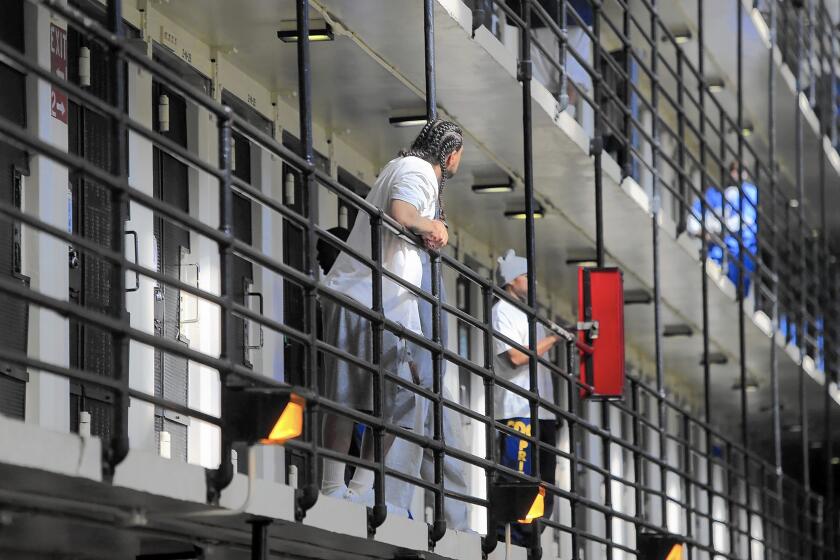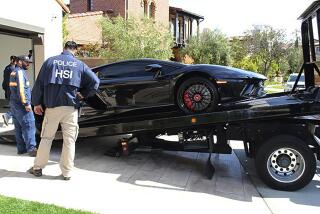Irvine man used COVID relief loans to buy Ferrari, Bentley and Lamborghini, federal authorities say

An Irvine man was arrested on fraud charges Monday after authorities say he used $5 million in pandemic relief loans to buy luxury sports cars, take lavish vacations and cover his personal expenses.
Mustafa Qadiri, 38, submitted bogus applications for federal loans under the Paycheck Protection Program on behalf of four Newport Beach businesses he purportedly ran, according to federal prosecutors. None of them are currently in business, they said.
Federal agents have seized Ferrari, Bentley and Lamborghini sports cars that Qadiri bought with the loan money, along with $2 million from his bank accounts, according to the U.S. attorney’s office in Santa Ana.
Qadiri was indicted by a federal grand jury on four counts of bank fraud, four counts of wire fraud, six counts of money laundering and one count of aggravated identity theft.
His lawyer, Bilal Essayli, could not be reached for comment.
Qadiri’s arrest is the latest example of rampant fraud that has plagued the federal programs set up to relieve economic hardship caused by the pandemic. In California alone, officials have confirmed at least $11 billion in illicit unemployment claims — a number that is expected to balloon by billions of dollars.
Congress created the “PPP” loan program in March 2020 to provide emergency aid to small businesses. The loans, designed to prevent layoffs, can be spent on payroll, rent, mortgage payments or utility bills — but not personal expenses.
Consumers lost more than $3.3 billion to fraud last year, up a whopping 83% from the year before, according to the FTC.
Qadiri secured loans to two mortgage businesses, All American Lending and All American Capital Holdings, and two advertising outlets, RadMediaLab and Ad Blot, according to the indictment.
His loan applications inflated the number of employees on his payrolls and altered the companies’ bank records with inflated balances, the grand jury charged. Qadiri also provided fictitious federal tax returns to banks that processed the loans, the indictment says, and falsely certified that he would use the money for business purposes.
California’s Employment Development Department sent more than $42 million in coronavirus benefits to prison inmates in other states, according to an analysis reviewed by The Times.
More to Read
Sign up for Essential California
The most important California stories and recommendations in your inbox every morning.
You may occasionally receive promotional content from the Los Angeles Times.













